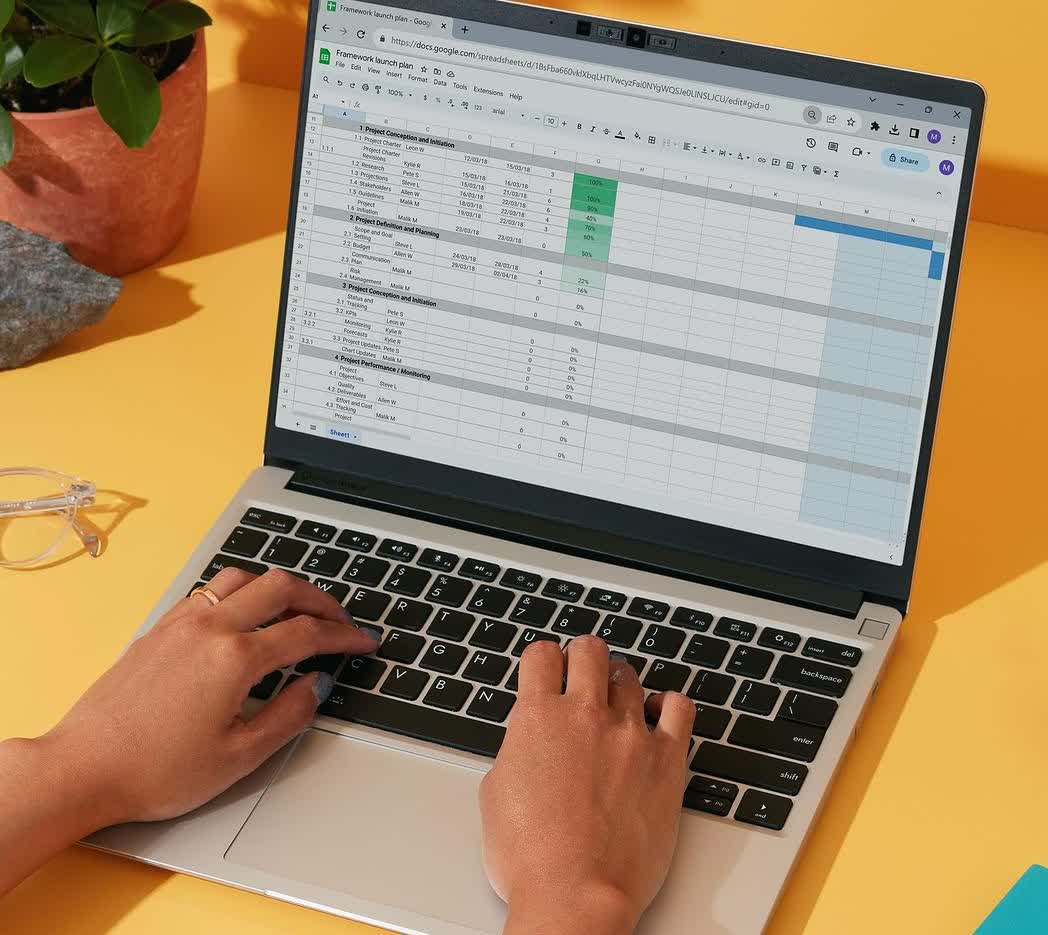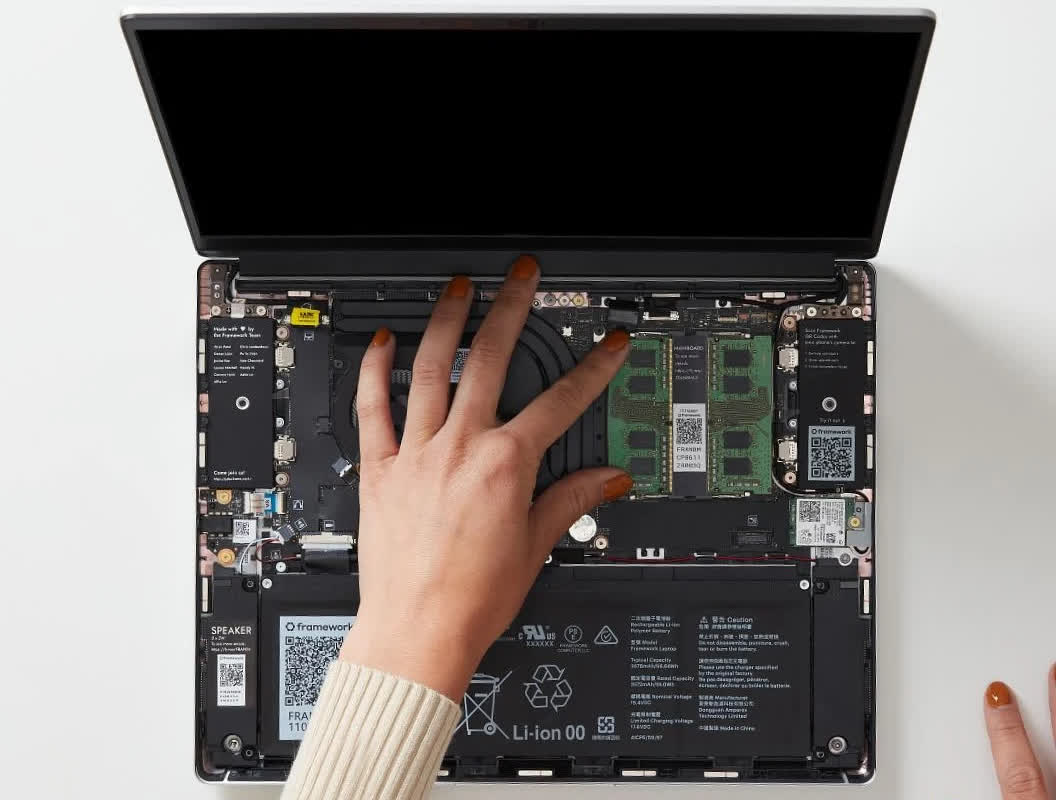In brief: Framework, the company that makes easily upgradable, customizable, and repairable laptops, is now selling the cheapest model it's ever sold. Priced at just $499, the B-stock Factory Seconds Framework Laptop 13 looks like a bargain, though it is distinctly bare-bones.
Framework's Factory Seconds laptops are new systems that use excess parts from the Framework Laptop (11th Gen Intel Core) era. The company says that rather than scrapping this material, it's combined with new parts, put through factory testing to ensure it all works as it should, and then the laptops are sold at greatly reduced prices.
The $499 configuration of the B-stock Factory Seconds DIY Edition laptop comes with an Intel i7-1165G7 CPU but not much else. You'll have to provide your own memory, storage, Wi-Fi, Power Adapter, Operating System, and Expansion Cards. It's essentially just the laptop's frame and that processor, though you do get a Framework screwdriver in the box.
While A-stock units feature a matte display, B-stock units contain an original display that Framework says has slight cosmetic issues, such as backlight non-uniformity or fine lines visible from certain angles.
Framework's marketplace does have all the cheap components and software needed to turn the B-stock Factory Seconds into a complete laptop. Adding 8GB of refurbished DDR4-3200 ($30), an Intel Wi-Fi 6E AX210 No vPro Wi-Fi card ($18), and a 250GB NVMe SSD ($39), pushes the price up to a still impressively low $586. Framework will also include Windows 11 Home for an extra $139. There's no way to upgrade the screen or GPU, but it's still arguably a good price for a laptop of this nature.
Framework also announced that its Laptop 16 machine has now shipped to customers. The PC is aimed more at gamers, with the high-end configuration packing a Ryzen 9 7940HS and a removable 100W Radeon RX 7700S. All models feature a 1600p 165 Hz VRR IPS display and have the same easily upgradable and customizable components.
Framework has seen its laptops' popularity rise in recent years, helped by YouTube tech star Linus Sebastian's investment in the company.

